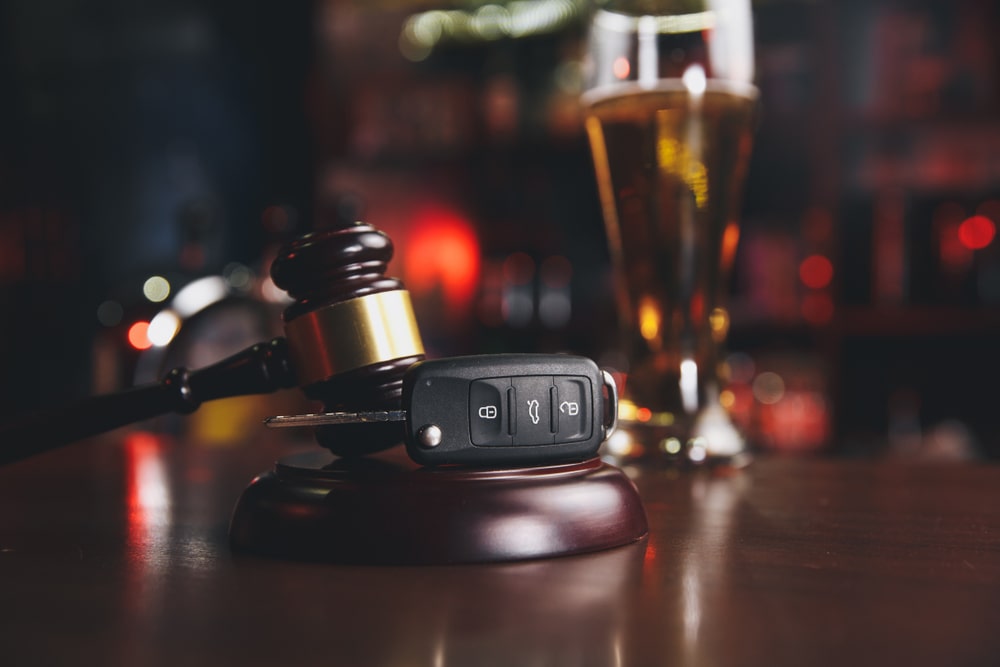
Navigating the legal landscape of impaired driving charges in Ohio can be challenging and confusing. Both OVI (Operating a Vehicle Impaired) and DUI (Driving Under the Influence) refer to offenses related to impaired driving, but in Ohio, OVI is the term predominantly used by law enforcement and the legal system. In Ohio, there is essentially no difference between an OVI and a DUI, as they both refer to the same offense when a driver’s blood alcohol content exceeds the legal limit of 0.08%.
With the potential for severe penalties, understanding these terms is crucial for anyone facing charges in Ohio. Penalties can include heavy fines, license suspension, and even jail time, which is why consulting a criminal defense lawyer is vital for anyone facing criminal penalties from an OVI conviction. Being informed about what these charges mean and their implications can be pivotal in managing legal outcomes.
Anyone interested in the broader impacts of these charges will find value in exploring the nuances and legal proceedings associated with impaired driving in Ohio. This article clarifies common misconceptions and offers guidance on navigating the legal process.
Understanding DUI and OVI Charges in Ohio
In Ohio, OVI and DUI are often confused, yet they have distinct meanings and legal implications. It is crucial to grasp these differences to navigate Ohio’s legal landscape effectively.
Definition and Distinctions
OVI stands for “Operating a Vehicle Impaired,” a term unique to Ohio. It covers impairment by alcohol or drugs. DUI, “Driving Under the Influence,” is a more commonly used term across the United States but is not the primary legal term in Ohio. The key difference lies in the terminology and broadness, as OVI is more encompassing in Ohio.
Ohio law specifically charges individuals with OVI rather than DUI. This legal nuance can impact charges and penalties. Both terms involve operating a vehicle while impaired, but understanding Ohio’s preference for OVI is essential for those involved in such cases.
Common Misconceptions
Many people mistakenly believe that OVI and DUI are interchangeable. This confusion can stem from the terms used in other states or portrayed in the media. In Ohio, using the term OVI is more accurate and reflective of state-specific legislation.
Another common myth is that an OVI charge is less severe than a DUI offense. This is not the case. OVI in Ohio can have severe consequences, including fines, getting your license suspended, and even imprisonment. Believing that OVI is a less serious offense can lead to underestimating the consequences of such charges. Recognizing these distinctions is vital for addressing misconceptions effectively.
Legal Implications and Processes
In Ohio, understanding the legal distinctions between an OVI and a DUI is crucial. Each charge carries specific consequences and requires a careful examination of the legal procedures involved. Legal assistance can be vital in navigating these complexities effectively.
Consequences and Penalties
The penalties for OVI convictions include license suspension, fines, and potential jail time. First-time offenders might face a license suspension of up to one year and fines of up to $1,075. Subsequent offenses increase penalties significantly, including longer suspensions and higher fines. DUI (Driving Under the Influence) is a more generic term, but Ohio uses OVI specifically. The penalties are not substantially different but understanding the terminology is crucial. Points and infractions are also added to the driver’s record, impacting insurance and future license status. Importantly, these charges can have lasting impacts on driving privileges and employment opportunities.
The Legal Procedure for Charges
The legal procedure for OVI/DUI charges begins with the arrest and chemical tests, such as breathalyzers or blood tests. The accused may request a hearing to contest the administrative license suspension within a limited time frame. The court process involves arraignment, pre-trial motions, and potentially a trial. Plea bargains are also possible, which may reduce charges. Finally, sentencing determines the specific penalties imposed. Throughout the process, meticulous adherence to procedural rules is critical, as any deviations can impact the outcome. Legal representation often plays a key role in negotiating outcomes or identifying procedural errors.
Importance of Legal Assistance
Seeking immediate legal counsel is vital when facing OVI/DUI charges. An attorney can guide you through the complex legal system, ensuring your rights are protected. They can challenge evidence, negotiate plea deals, and strive for reduced sentencing. Local attorneys who focus in OVI/DUI cases in Ohio are particularly valuable, as they are familiar with state-specific laws and court practices. Without legal support, there is a risk of facing the maximum possible penalties. Timely legal advice can significantly alter the trajectory of a case, influencing short-term outcomes and long-term impacts on your personal and professional life.
Back to Blog

